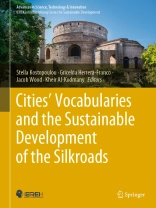This book discusses how cities’ identities are formed and developed over time and portrays architecture and the arts as the embodiment of the historical, cultural, and economic characteristics of cities. Furthermore, it explores strategies and solutions to preserve the cultural heritage along the Silk Road, representing a compilation of research addressing the economic and social opportunities and challenges related to the development of a more sustainable and responsible approach to tourism development and the preservation of heritage. As such, it covers a wide range of audiences including economists, architects, planners, tourism experts, and decision-makers interested in making use of cities’ available resources and features, offering strategies to explore development opportunities through sustainable and responsible tourism along the Silk Road.
This book is a culmination of selected research papers from the first version of the International Conference on’Silk Road Sustainable Tourism Development and Cultural Heritage (SRSTDCH)’ which was held in 2021 in collaboration with Aristotle University of Thessaloniki, the European Interdisciplinary Silk Road Tourism Centre, Greece and the 5th Edition of the International Conference on “Cities’ Identity Through Architecture and Arts (CITAA)” which was held in 2021 in collaboration with University of Pisa, Italy.
Tabla de materias
Cities’ architecture and formation, and the impact on their identities and cultures.- Methods and approaches of urban regeneration, preservation and restoration of public spaces and cultural heritage sites.- Silk Road tangible cultural heritage, art, tourism and conservation.- Intangible cultural tourism along the Silk Roads .- Sustainable development of tourism.












